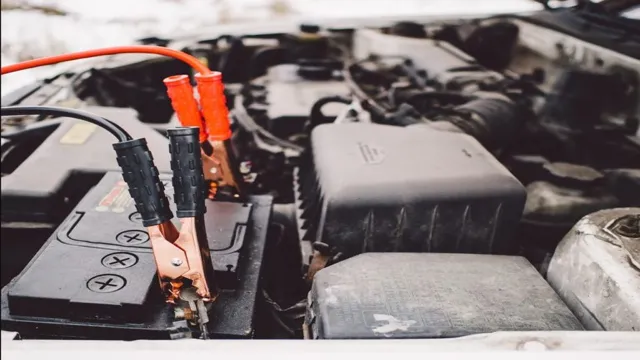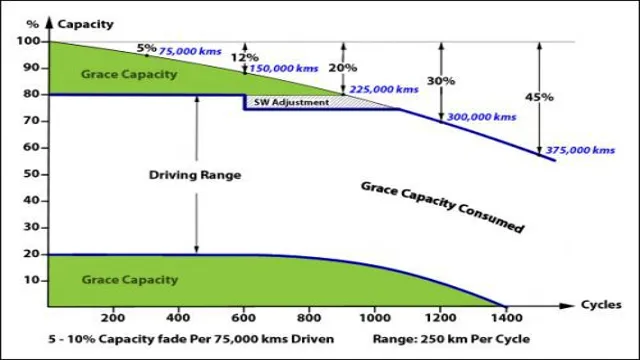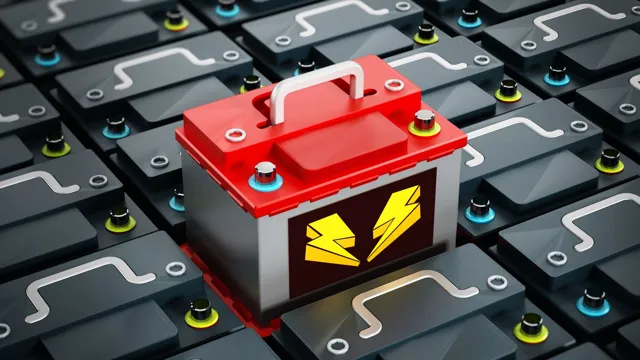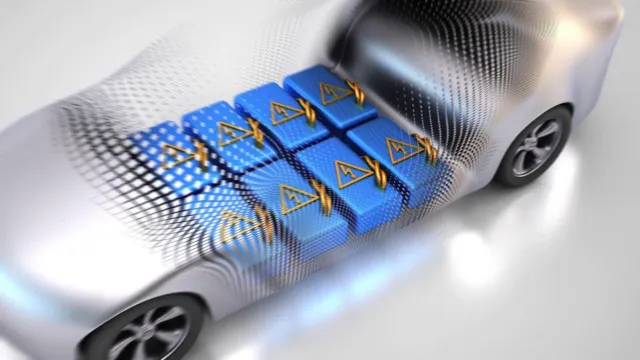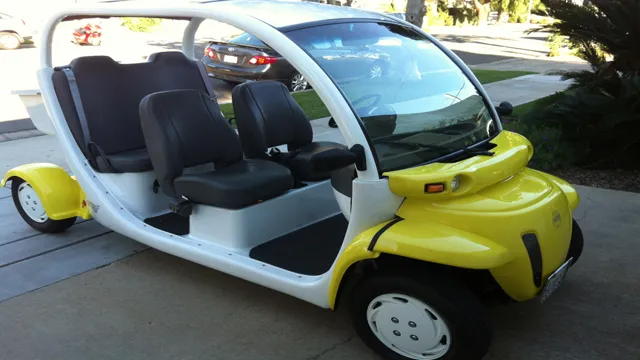Electric Cars: Who Really Owns the Power? Debunking the Myth About Battery Ownership
Have you ever considered owning an electric car? With the increasing popularity of eco-friendly vehicles, electric cars are making waves in the automobile industry. One of the most significant components of electric cars is their batteries, and as an owner, it’s essential to understand the ins and outs of electric car battery ownership. From charging to maintenance, managing electric car batteries can be a breeze, but it does require some knowledge and effort.
You’ll need to learn how to charge, replace, and dispose of electric car batteries properly. In this article, we’ll explore the basics of electric car battery ownership and how you can get the most out of your electric car’s battery. So, sit back, grab a cup of coffee, and let’s dive in!
Overview
So, the question on everybody’s mind is, “do you own the batteries on an electric car?” The answer is, it depends on the manufacturer and the type of electric car you own. Most electric car manufacturers either lease or retain ownership of the battery, while some allow you to purchase the battery outright. One thing to keep in mind is that the battery is one of the most expensive components of an electric car, which makes it an important consideration for prospective electric vehicle (EV) owners.
The good news is that owning the battery gives you complete control over its usage, charging, and maintenance. This means that you can extend the lifespan of the battery by implementing proper charging habits and taking good care of it. Additionally, battery ownership provides more flexibility in terms of replacement, upgrades, or even repurposing the battery when it reaches the end of its life.
If you’re interested in purchasing an electric car, it’s vital to understand the battery ownership situation to make an informed decision that fits your needs and budget.
Explaining battery ownership for electric cars
Electric cars are becoming more and more prevalent on our roads, but one area people often have questions about is the ownership of the batteries. Who owns the battery in an electric car? Is it the manufacturer, the buyer, or someone else entirely? The answer is that it depends. In some cases, the car manufacturer will own the battery and lease it to the buyer.
This is usually done to lower the cost of the car and reduce the upfront cost for the buyer. In other cases, the buyer owns the battery outright and can do whatever they wish with it. This is more common with higher-end electric vehicles.
It’s important to consider the terms of ownership when looking into purchasing an electric car to ensure you understand your rights and responsibilities.
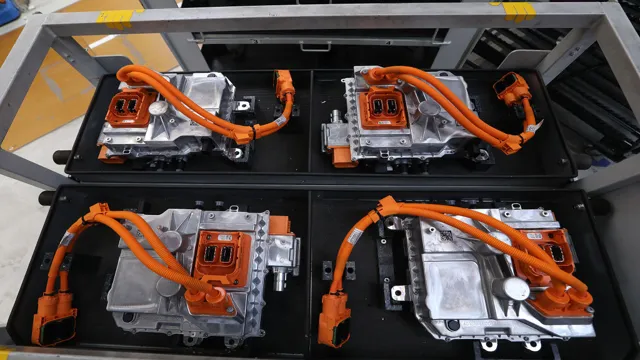
Different types of battery ownership for electric cars
When it comes to owning an electric car, one of the biggest decisions you’ll face is what type of battery ownership you prefer. The three main options are leasing, buying, and battery swapping. Leasing is similar to leasing a car, where you pay a monthly fee for a set period of time and return the battery at the end of the lease.
Buying the battery outright means you own it and are responsible for maintenance and replacement when the time comes. Finally, battery swapping involves swapping out your depleted battery for a fully charged one at a designated location. Each option has its own advantages and disadvantages, and it’s important to consider your driving habits and budget before making a decision.
No matter which option you choose, the most important thing is to have a reliable and efficient battery system that will keep your electric car running smoothly for years to come.
Manufacturer-Owned Batteries
Many people wonder if they own the batteries on an electric car. The answer to this question is that it depends on the manufacturer. Some car makers, such as Tesla, allow their customers to own the batteries outright, while others, such as Nissan, retain ownership of the batteries and lease them to the customer.
It’s important to check with the manufacturer to find out what their policy is before making a purchase. If you do own the batteries, it’s important to know that they will need to be replaced at some point, and this can be a significant expense. However, owning your batteries also means that you have more control over their maintenance and replacement.
Ultimately, the decision to own or lease the batteries will depend on your personal preferences and financial situation.
Advantages and disadvantages
Manufacturer-Owned Batteries Manufacturer-owned batteries have several advantages, including reliability, compatibility, and cost-effective. Since the manufacturer produces both the battery and the device, there is a high likelihood that the batteries will be compatible with their devices. This ensures that the battery will work optimally, and also guarantees that there aren’t any unforeseen problems or manufacture defects.
Additionally, the reliability of the batteries is assured because the manufacturer has tested the batteries thoroughly before selling them. And since the batteries don’t need to be produced to fit multiple products, the cost is relatively low. However, there are some disadvantages as well, such as restricted options and difficulty in finding replacement batteries.
Since these batteries are created specifically for a particular device, you might struggle to find a suitable replacement if your battery malfunctions. Additionally, you might not have options such as higher-capacity batteries if the manufacturer doesn’t make them. Overall, manufacturer-owned batteries tend to be a reliable and cost-effective solution, but they come with some limitations that must be considered.
Examples of car brands that own their batteries
When it comes to electric cars, one of the biggest concerns for drivers is the battery. Some car companies have addressed this issue by owning and developing their own batteries. One example is Tesla, which produces its own batteries to power its electric cars.
This allows them to have more control over the quality and performance of the battery, which in turn can lead to better overall performance of the vehicle. Another company that has taken this approach is Nissan, with their Leaf electric car. Nissan produces the batteries for the Leaf at their own facilities, which allows them to offer a warranty of up to 8 years on the battery.
Other car companies, such as BMW with their i3 and i8 models, have partnered with battery manufacturers to create bespoke batteries for their vehicles. While there are benefits to owning and producing their own batteries, it can also be expensive and time-consuming to develop and maintain. However, it’s clear that some car companies see it as a worthwhile investment for the future of electric cars.
Third-Party Owned Batteries
Do you own the batteries on an electric car? Well, the answer is not that straightforward. It depends on whether you have purchased an electric vehicle with a battery pack or leased the battery separately from a third-party provider. In some cases, automakers offer the option to buy or lease the battery separately from the vehicle, which allows the driver to upgrade or replace the battery as technology evolves.
However, most new electric vehicles come with batteries that are owned by the automaker and covered under warranty for up to eight years or more. In essence, this means that the automaker is responsible for the battery’s performance and maintenance, and you only pay for the electricity to charge it. Therefore, before committing to an electric vehicle, it’s essential to determine whether you’ll own the battery outright or lease it, as this can affect your long-term ownership costs and flexibility.
Advantages and disadvantages
When it comes to third-party owned batteries, there are both advantages and disadvantages to consider. One of the biggest advantages is the cost savings. Third-party providers often offer batteries at a lower cost than the original equipment manufacturer, making it more affordable for homeowners to invest in solar energy systems.
Another advantage is the ability to have a warranty and maintenance plan included in the cost, which can provide extra peace of mind for homeowners. However, there are also some disadvantages to third-party owned batteries. These batteries may not be compatible with all types of solar energy systems, and if they do not work properly with the system, they could have a negative impact on performance.
Additionally, third-party providers may not have the same level of support or resources as the original equipment manufacturer, which could lead to longer wait times for repairs or replacements. Overall, it’s important to weigh the pros and cons before deciding if third-party owned batteries are the right choice for your solar energy system.
Examples of companies that offer third-party batteries
If you’re in the market for a replacement battery for your electronic device, you don’t always have to go with the manufacturer’s recommended option. There are plenty of third-party companies that offer high-quality batteries that can work just as effectively. One example is Anker, which offers a range of batteries for smartphones, tablets, and laptops.
Their batteries are designed to be just as reliable as the original, with some even offering more capacity. Another example is RavPower, which also offers a variety of batteries for various devices. Their batteries are known for being long-lasting and reliable.
So if you’re looking for a replacement battery and want to explore third-party options, there are plenty of reputable companies to choose from.
Conclusion
In conclusion, while you may be the owner of the batteries on your electric car, it’s important to remember that they are just one piece of the puzzle. Without a functioning charging infrastructure, innovative technology, and sustainable energy sources, those batteries won’t get you very far. So, let’s work together to power our electric cars and our future in the most efficient and effective way possible – and leave the jokes about “charging” and “discharging” to the professionals.
“
Factors to consider when choosing an electric car battery ownership option
One of the most popular options for owning an electric car battery is through third-party ownership. This means that a separate company, rather than the car manufacturer, owns and manages the battery. This option can be appealing because it reduces the upfront cost of the car since the battery is leased rather than owned.
Additionally, third-party ownership can provide flexibility in terms of upgrading the battery over time. However, there are some factors to consider when choosing this ownership option. It’s important to research the reputation of the third-party provider, as well as their service and warranty options.
Another consideration is how the separate ownership of the battery may affect resale value or potential maintenance costs down the line. Nonetheless, for those looking for a potentially more cost-effective and flexible ownership option, third-party owned batteries may be worth considering.
FAQs
Do I own the batteries on an electric car?
It depends on the ownership structure of the car. Some electric cars allow you to lease the battery separately, while others include the battery as part of the overall vehicle purchase.
What happens to the batteries in an electric car?
The batteries in an electric car can be recycled or repurposed once they have reached the end of their useful life. This can help to reduce waste and promote sustainability.
How long do the batteries in an electric car last?
It depends on a variety of factors, including the quality of the battery, how it is used and maintained, and the overall health of the vehicle. In general, most electric car batteries are designed to last anywhere from 8-10 years.
How do I replace the batteries in my electric car?
If your electric car needs a battery replacement, you will usually need to take it to a certified dealership or service center. They can help you determine the best replacement option and provide the necessary installation services.

